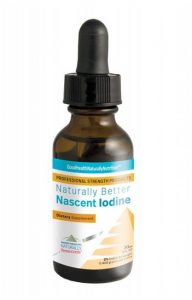Women who follow the paleo diet long-term may need to supplement with iodine. A new study published in the European Journal of Clinical Nutrition looked at the long-term adherence to the paleo diet and how it leads to mild iodine deficiency in healthy post-menopausal Swedish women. This was compared with women consuming a diet according to the Nordic Nutrition Recommendations (NNR).
Researchers believe that the iodine issue is an ongoing concern and this is exemplified by the re-occurence of iodine deficiency in the UK. There is also a growing awareness of new groups that are most at risk.
Within this study, a low 24 hour urinary iodine excretion in subjects following a paleo diet, confirmed this hypothesis. For the first time, a paleo diet could result in the risk of developing iodine deficiency when compared to a diet following the Nordic Nutrition Recommendations (NNR).
What is The Paleo Diet?
The Paleolithic (Paleo) or ‘Caveman’ diet consists of eating lean meats, most fruits and vegetables, and avoidance of grains, corn, potatoes dairy and legumes. Interest in the Paleo diet has increased over the years as the rise in health and fitness has soared.
What Did The Research Find?
Seventy healthy postmenopausal overweight or obese women were asked to participate in the two year prospective and randomised weight loss trial. They were asked to consume the Paleo diet or they were assigned the Nordic Nutrition Recommendations (NNR).
Both groups had similar iodine levels at the start of the study. This was measured by a 24 hour urinary iodine concentration (24-UIC) and a 24 hour urinary iodine excretion (24-UIE). In both measures, decreases were observed in the paleo group but none were observed in the NNR group.
Between 6 months to 2 years, the researchers noted that iodine levels were seen to increase. They didn’t return to the same values as were seen at the start of the study however, nor did they reach the levels seen in the NNR group. The increase was attributed to poor compliance with the diet plan, the longer that the study continued.
To conclude, researchers noted that for the first time, the Paleo Diet was associated with development of mild iodine deficiency. This is opposed to the maintenance of normal iodine status on the NNR diet. This happened through both diets and any concurrent weight reduction.
What This Research Means
Everyone should ensure they get enough iodine. This vital mineral plays an essential role in the normal functioning of the thyroid gland. From here, thyroid hormones are secreted that control the base metabolic rate in the body. Thyroid hormones can’t be synthesized when this isn’t right.
Iodine plays an essential role in optimising energy levels, boosting the immune system and may potentially prevent fibrocystic disease and hypothyroidism, remove toxic chemicals, support cell health and reduce the risk of cancer.
Recommended Examples
 Nascent Iodine – Supports thyroid health and provides immune protection. All cells in the body utilise the critical mineral iodine and rely on it for daily function. Can support increased energy along with hormone and immunity levels. Nascent Iodine – Supports thyroid health and provides immune protection. All cells in the body utilise the critical mineral iodine and rely on it for daily function. Can support increased energy along with hormone and immunity levels. |



